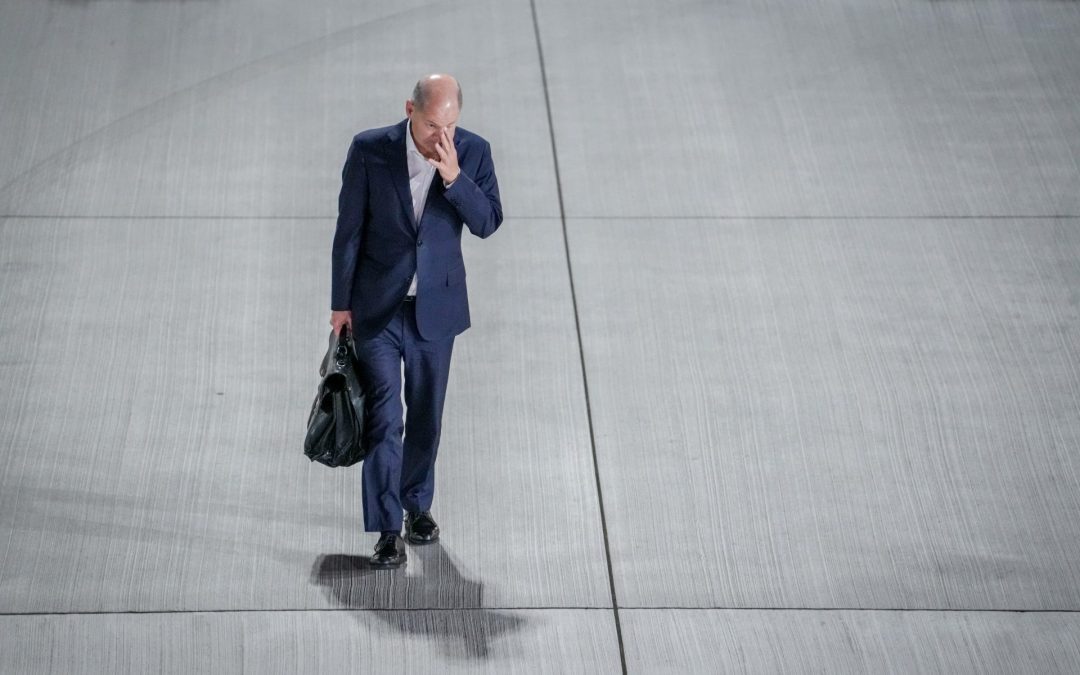Berlin – The German governing coalition of the SPD, Greens, and FDP has failed, and a new election is pending in Germany – only when? According to the opposition, the German economy, and European partners, a new Bundestag should be elected as quickly as possible and ideally still in January. However, Chancellor Olaf Scholz (SPD) has other timing ideas: He wants to pose the vote of confidence in the Bundestag on January 15 and thus bring about an early election at the end of March. Federal President Frank-Walter Steinmeier has a key role in this process and says: “I am ready for this decision.”
EU leaders for quick election in Germany
Finnish Prime Minister Petteri Orpo hopes for a quick new election in Germany. Europe needs a strong German government, Orpo said on the sidelines of a summit of the European Political Community (EPG) in the Hungarian capital, Budapest. Belgian Prime Minister Alexander De Croo, his Swedish counterpart Ulf Kristersson, and Danish Prime Minister Mette Frederiksen agreed.
Scholz originally also wanted to attend the EPG summit. Due to the domestic political situation, he wanted to travel there only in the evening. The summit of the heads of state and government of the EU countries will then follow. Countries like Ukraine, Great Britain, and Turkey are also part of the European Political Community.
Opposition: Merz’s talk with Scholz on cooperation ends without results
It is known that the relationship between Chancellor Scholz and opposition leader Friedrich Merz (CDU), the union’s candidate for chancellor, is tense. Nevertheless, Scholz offered cooperation to the CDU/CSU immediately after Finance Minister Christian Lindner’s (FDP) expulsion from the government.
A roughly hour-long conversation between Merz and Scholz, according to information from the Union faction, ended without results. Merz made it clear that the Union was ready to talk about agenda items or laws in the Bundestag. But first, the chancellor must pose the vote of confidence by the beginning of next week at the latest. Merz then considers a possible election date in the second half of January.
Scholz: Do what is necessary for the country
But Scholz sticks to his schedule. He will do what is necessary for the country, said the SPD politician. “Citizens will soon have the opportunity to decide anew how things should proceed.” Cooperation with the Union is about finding solutions to strengthen the economy and defense – on issues “that are crucial for our country, to work constructively together: in the rapid strengthening of our economy and our defense.”
Presumably difficult government formation after new election
In the event of a new election, forming a government in Germany is unlikely to be easy. While the Union could expect to become the strongest force for now, it is unclear who would be a possible coalition partner. In polls conducted before the coalition breakup, the Union parties have recently been clearly ahead with values over 30 percent.
The SPD, Greens, and FDP are significantly weaker compared to the 2021 federal election. The SPD stood at around 15 percent and behind the AfD with about 18 percent, the Greens around ten percent. The FDP was worried about re-entering the Bundestag. CSU leader Markus Söder has repeatedly categorically excluded black-green (a coalition of CDU/CSU and the Greens). (November 7)
 go to the original language article
go to the original language article
